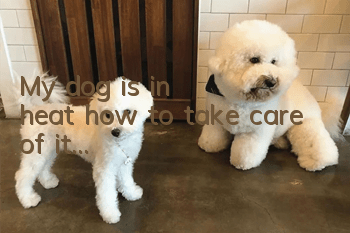8 Key Points to Care for Newborn Puppies

1. Newborn puppies should be carefully distinguished with belts. There is no difference in the appearance of the puppies in the first week. They should be tied with different colors of belts to distinguish them, so that they know who has sucked milk and who has not.
2. From the first day the puppies are born, weigh them every day. Generally, they weigh about 450-550 grams when they are born. In the first 4 weeks, they gain an average of 50 grams per day, and at 4-8 weeks, they gain almost 100 grams per day.
3. Small dogs mature faster than large dogs. All puppies must eat four meals a day before they are 3 months old. This can be reduced to three meals a day between 3 and 6 months old. After 6 months of age, they can be fed twice a day. Small dogs mature faster than large dogs and can eat an adult dog's diet when they are 8 years old - but large dogs are still growing rapidly at this age and need to eat a puppy's diet for a long time. a period of time.
4. Keep good records. It should be pointed out that the needs of each puppy are not the same, some need more and some need less. Whether your feeding amount is appropriate can be seen from the physical condition of your puppy. Regularly measuring your puppy's weight and recording it will help you check that your puppy's growth rate matches the amount of food you are feeding. You can then make adjustments to prevent it from looking too fat or too thin.
5. Maintain a reasonable eating time. Normally, a puppy's eating time should be 10--15 minutes. Leftover food should be thrown away after a meal. Puppies must have their own eating and drinking utensils, which should be kept clean and separated from other utensils in the home. You must also provide your puppy with adequate, hygienic, fresh water. (If you find that your puppy is always thirsty, you should consult your veterinarian, as this may be a sign of illness.)
6. Good dog food is less likely to cause obesity. Puppies have small stomachs. If they are fed low-quality dog food, they will become full quickly and fail to absorb the nutrients they should. On the contrary, by feeding high-quality dog food, the puppy can absorb the protein it needs and will not become overweight or fat due to excessive food intake.
7. Dog milk is the best. Milk from herbivorous animals such as cow's milk and goat's milk is far less nutritious than dog milk. The protein content is only 1/4 of dog milk, and female dog milk does not coagulate in the stomach, while single milk turns into rennet and whey soon in the stomach. Whey is very effective in eliminating eczema in adult dogs, but it can easily cause gastrointestinal discomfort in puppies and puppies, and there is a risk of pneumonia. So it is best to use specialized puppy milk powder.
8. Don’t overeat. Many owners think that constantly feeding their puppies with food will make them stronger. In fact, this is a very wrong idea. Excessive eating will cause the puppy's skeleton to develop too quickly, leading to structural deformity of the skeleton. And low-quality food will only make puppies fat and loose muscles. Puppies that are overweight are also prone to heart and kidney diseases when they reach adulthood. Therefore, dog owners, please don’t overdo it.Puppy feeding.
- How to train a Caucasian to be obedient? Just read here to find out!
- What should I do if my Alaskan dog has indigestion? How to prevent it?
- How to train a dog to buy things for its owner
- What should you pay attention to during your dog’s menstruation period? What should you pay attention to during your dog’s menstruation period!
- How to train Doberman Pinscher? What should we pay attention to during training?
- What is kidney failure in dogs? !
- 5 factors that determine the price of a husky
- Are owners still worried about dogs peeing indiscriminately?
- How to treat lobular pneumonia in dogs
- How to solve dog body odor



